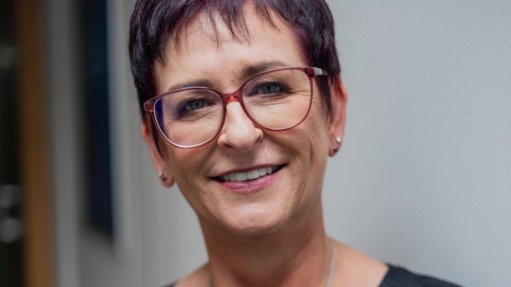Chinese debt trap
China has been a key African benefactor for a while, providing financing for all manner of infrastructure and rendering other forms of assistance. Even Mzansi’s Eishkom – as the national electricity utility is derisively called in some quarters, on account of persistent load-shedding – has been a beneficiary, having secured a multibillion-rand debt facility from the China Development Bank in 2018.
Given China’s reputation as a latter-day Shylock, as it does not hesitate to demand its pound of flesh from deadbeat borrowers, some African opinion leaders have urged those intending to borrow from the Asian country to exercise caution. Their trepidation is not without foundation. China is the very country that, in 2018, got Sri Lanka to cough up a port, and 15 000 acres of land to boot, after the latter had failed to service loans running into several billion dollars.
So, for the next nine decades plus, the $1.3-billion Hambantota port will be controlled by the Chinese under a lease arrangement. Ironically, the facility was built with part of the Chinese debt.
The lease deal also includes wide-ranging tax concessions for the port and a 32-year tax break for the Chinese State-owned firms that are the face of the Chinese government at Hambantota.
If media reports are anything to go by, China’s asset-grabbing ways could play out on our continent as well. Several respected Ugandan and international media outlets reported last month that Uganda is likely to lose its Entebbe International Airport, in Kampala, the capital city, over its failure to repay a $207-million loan from China’s Export-Import Bank. The loan, extended in 2015, was used to finance an expansion project at the airport and has a maturity period of 20 years, including a seven-year grace period. This is one of the many loans that Uganda has acquired from China over the past 15 years to fund infrastructure developments, including roads and electricity generation projects.
Whiles details of the loan have not been made public, a Parliamentary investigation in October revealed that the Chinese lender had imposed onerous conditions. These include potential forfeiture in the event of Uganda defaulting on the loan and a requirement that the Uganda Civil Aviation Authority (UCCA) seek approval from the Export-Import Bank for its budget and strategic plans.
A delegation of Ugandan officials is said to have been dispatched to Beijing in March to renegotiate the loan terms. However, the discussions fell through, which means Uganda remains vulnerable.
Both the Chinese embassy in Kampala and the UCAA have denied that Entebbe International Airport is about to be seized. However, given the opacity around the airport loan deal, one cannot say with any degree of certainty if this is indeed not the case.
At the triennial Forum on China-Africa Cooperation (FOCAC) held in Senegal on November 29 and 30, Chinese President Xi Jinping pledged $40-billion to African countries in investment, trade finance and special drawing rights. This represents a decline from the $60-billion pledged at the previous two FOCACs.
Despite the cut, China remains the biggest lender to the world’s poorest countries, including those in sub-Saharan Africa, where it provides about 20% of all lending. According to data compiled by researchers at Johns Hopkins University, in the US, China’s loan commitments to African countries peaked at $29.5-billion in 2016, dropping to $7.6-billion in 2019.
The International Monetary Fund categorises 20 countries in Africa as being at high risk of debt distress or already in debt distress. This list is significantly longer than a few years back, mainly because of the advent of Covid-19. So, it may not be the last time that we come across reports about China wanting to grab the assets of a bad debtor.
Article Enquiry
Email Article
Save Article
Feedback
To advertise email advertising@creamermedia.co.za or click here
Comments
Announcements
What's On
Subscribe to improve your user experience...
Option 1 (equivalent of R125 a month):
Receive a weekly copy of Creamer Media's Engineering News & Mining Weekly magazine
(print copy for those in South Africa and e-magazine for those outside of South Africa)
Receive daily email newsletters
Access to full search results
Access archive of magazine back copies
Access to Projects in Progress
Access to ONE Research Report of your choice in PDF format
Option 2 (equivalent of R375 a month):
All benefits from Option 1
PLUS
Access to Creamer Media's Research Channel Africa for ALL Research Reports, in PDF format, on various industrial and mining sectors
including Electricity; Water; Energy Transition; Hydrogen; Roads, Rail and Ports; Coal; Gold; Platinum; Battery Metals; etc.
Already a subscriber?
Forgotten your password?
Receive weekly copy of Creamer Media's Engineering News & Mining Weekly magazine (print copy for those in South Africa and e-magazine for those outside of South Africa)
➕
Recieve daily email newsletters
➕
Access to full search results
➕
Access archive of magazine back copies
➕
Access to Projects in Progress
➕
Access to ONE Research Report of your choice in PDF format
RESEARCH CHANNEL AFRICA
R4500 (equivalent of R375 a month)
SUBSCRIBEAll benefits from Option 1
➕
Access to Creamer Media's Research Channel Africa for ALL Research Reports on various industrial and mining sectors, in PDF format, including on:
Electricity
➕
Water
➕
Energy Transition
➕
Hydrogen
➕
Roads, Rail and Ports
➕
Coal
➕
Gold
➕
Platinum
➕
Battery Metals
➕
etc.
Receive all benefits from Option 1 or Option 2 delivered to numerous people at your company
➕
Multiple User names and Passwords for simultaneous log-ins
➕
Intranet integration access to all in your organisation

















